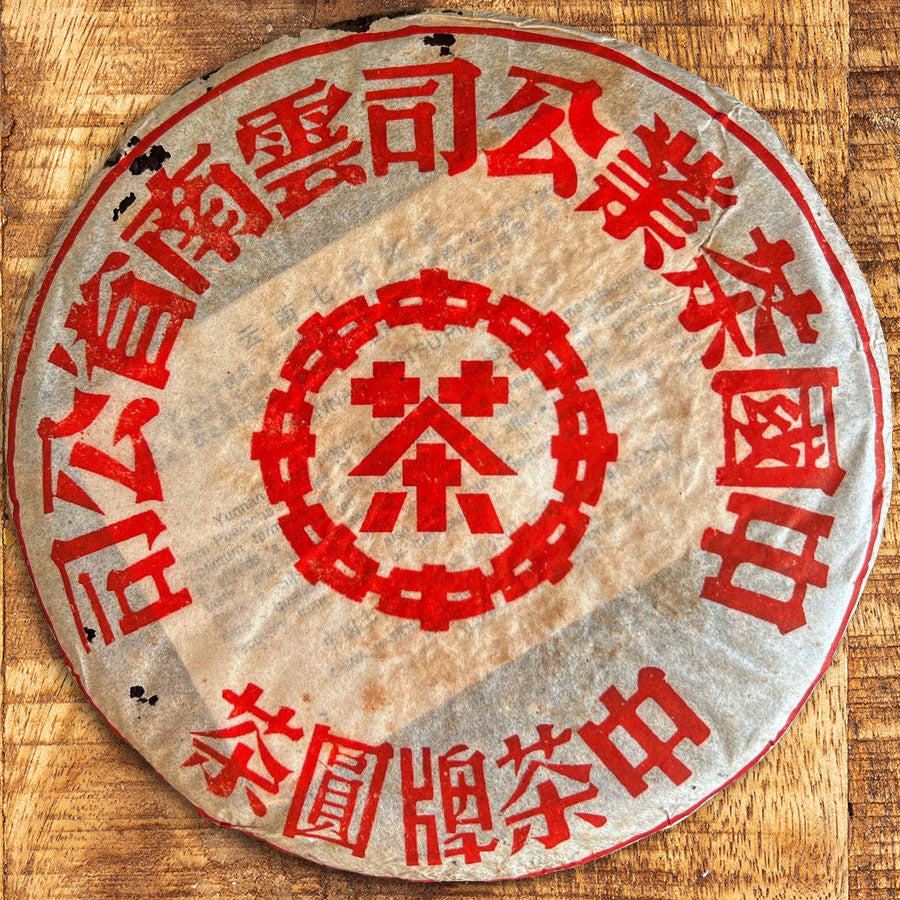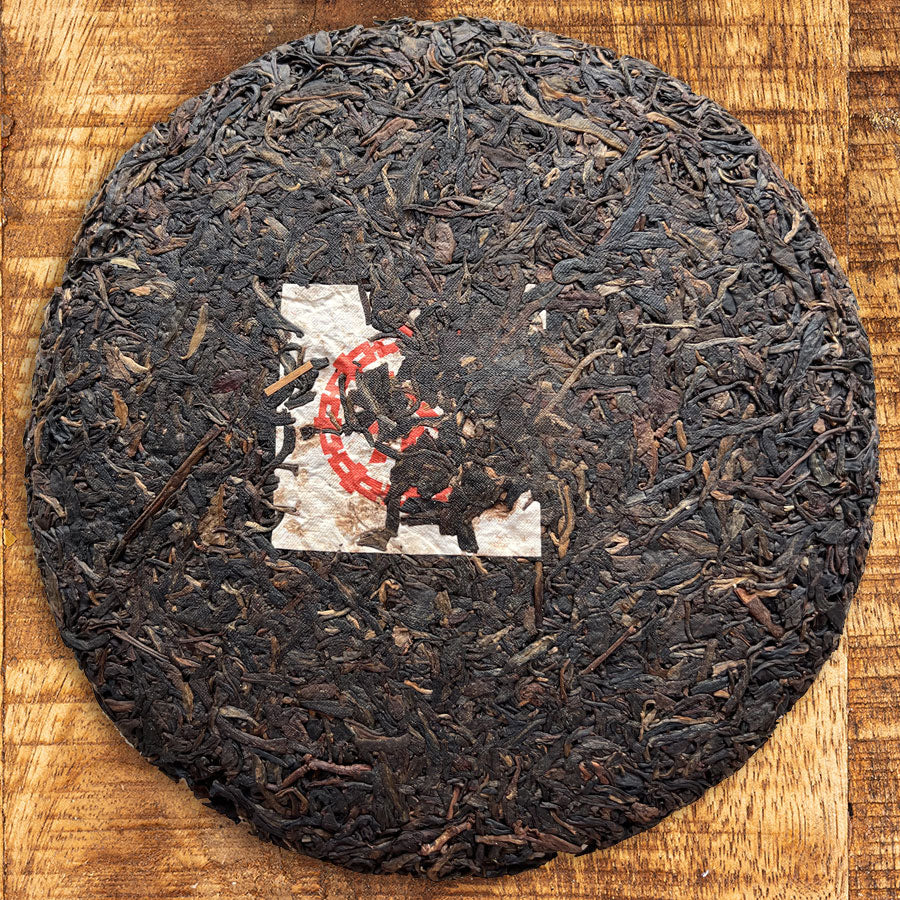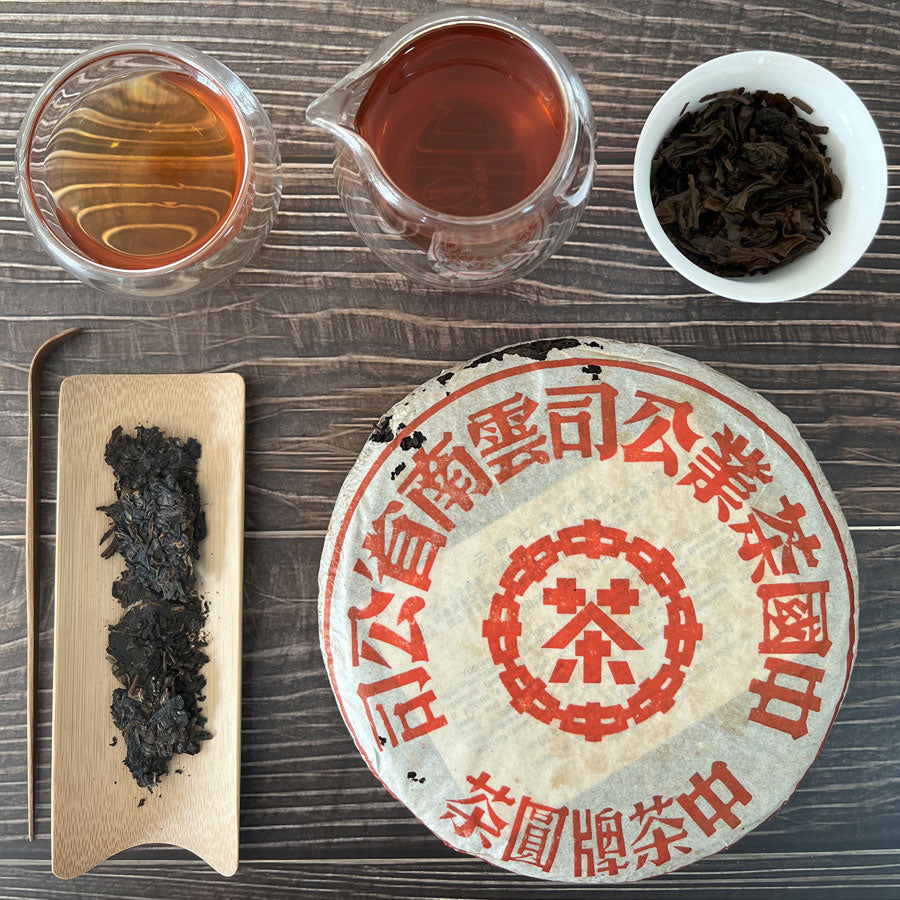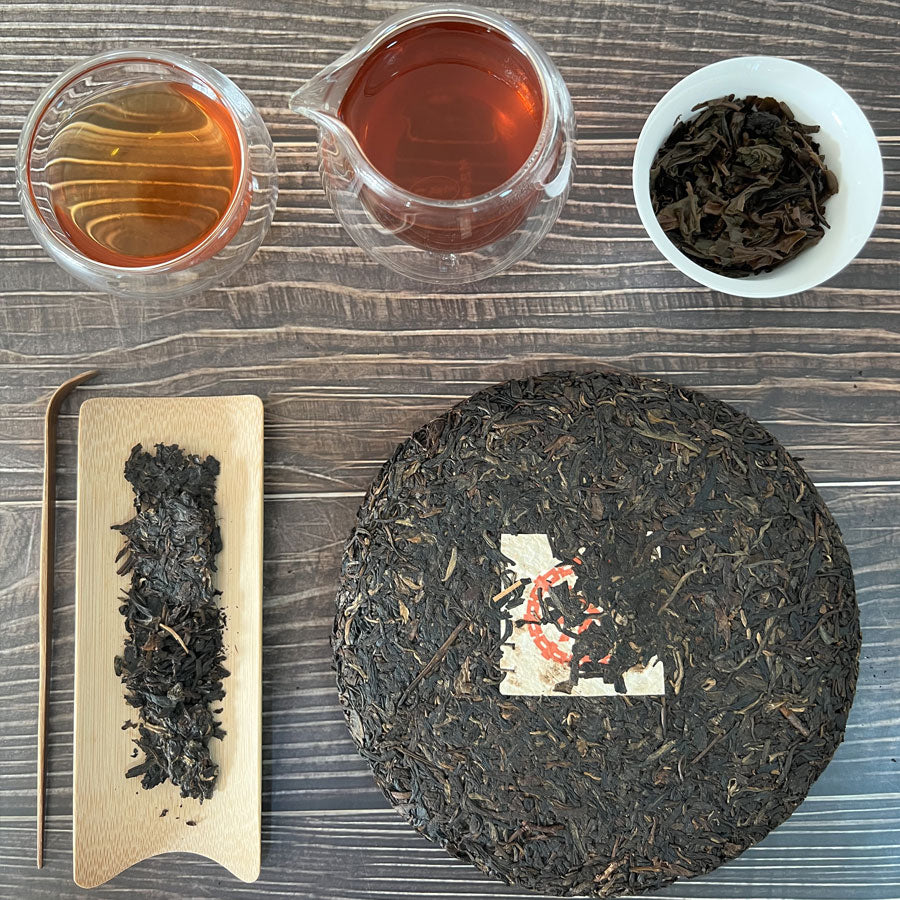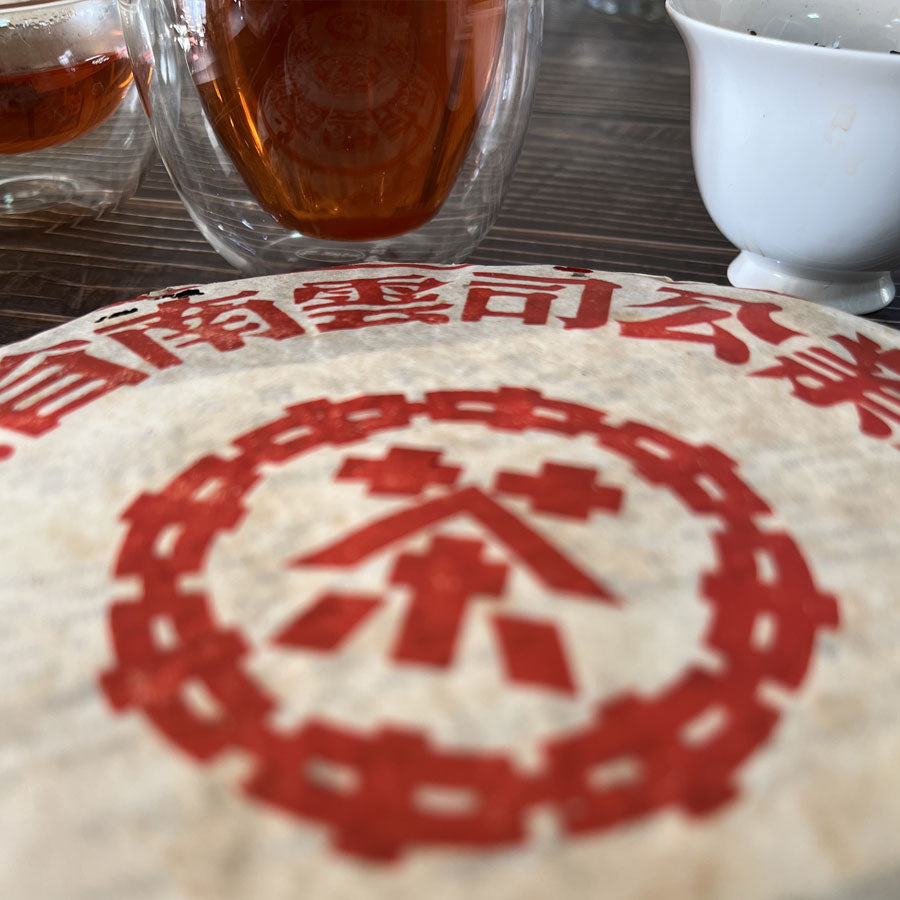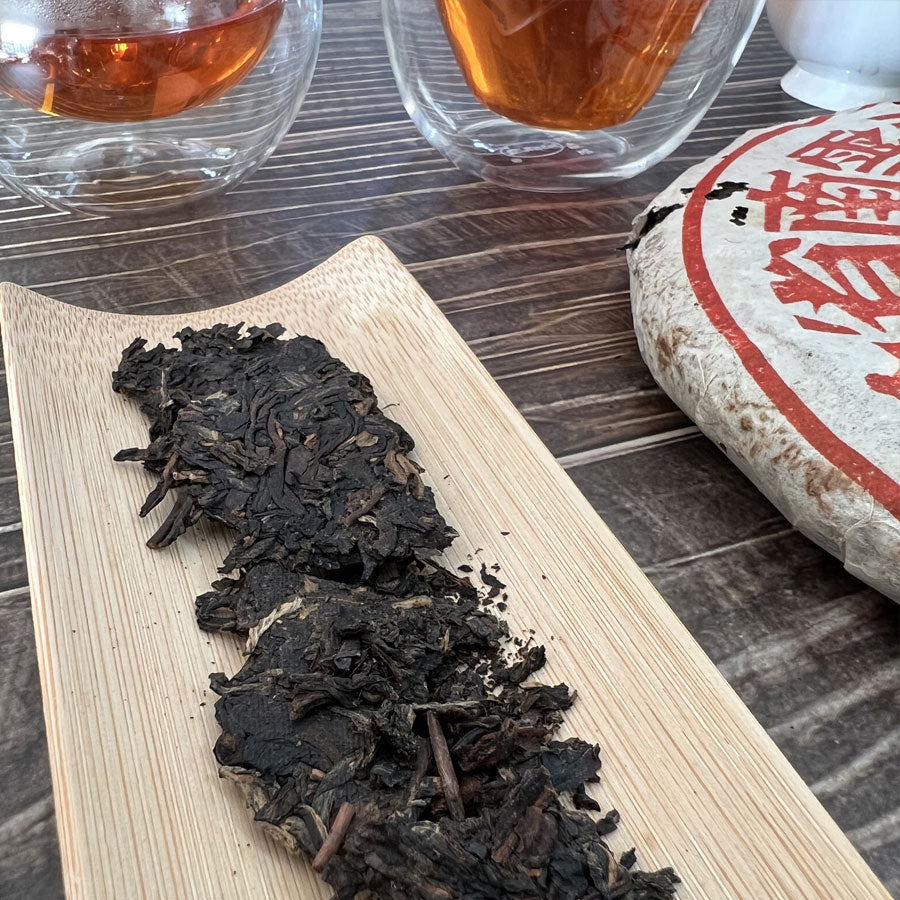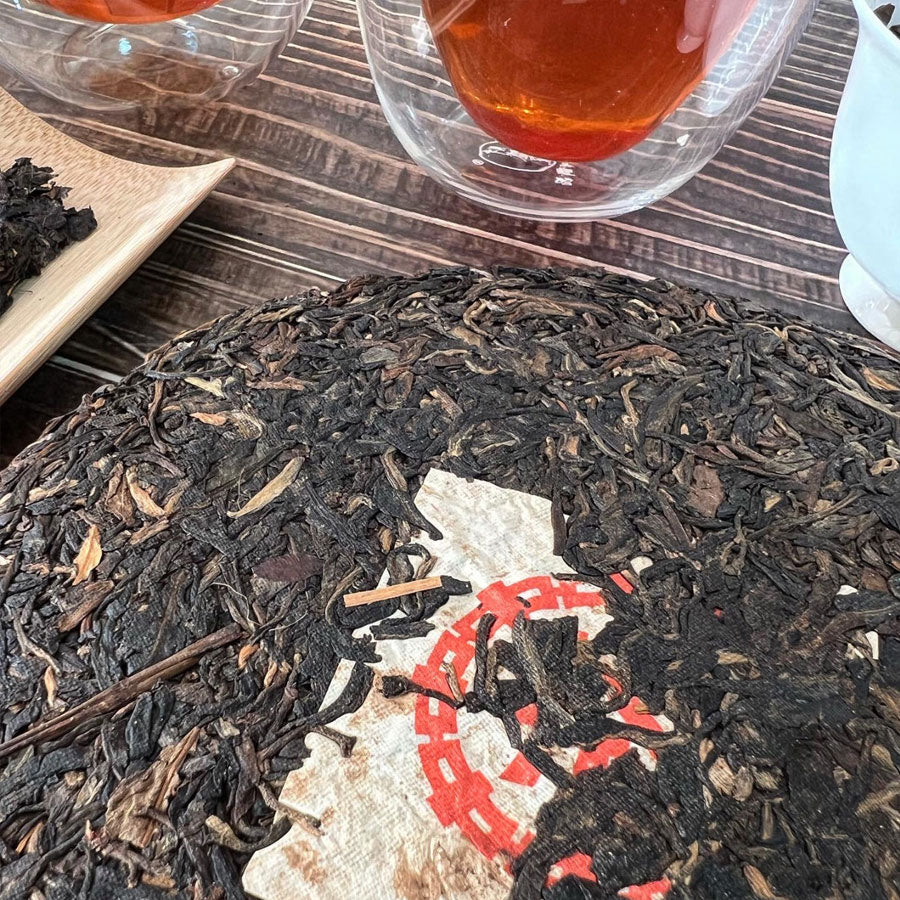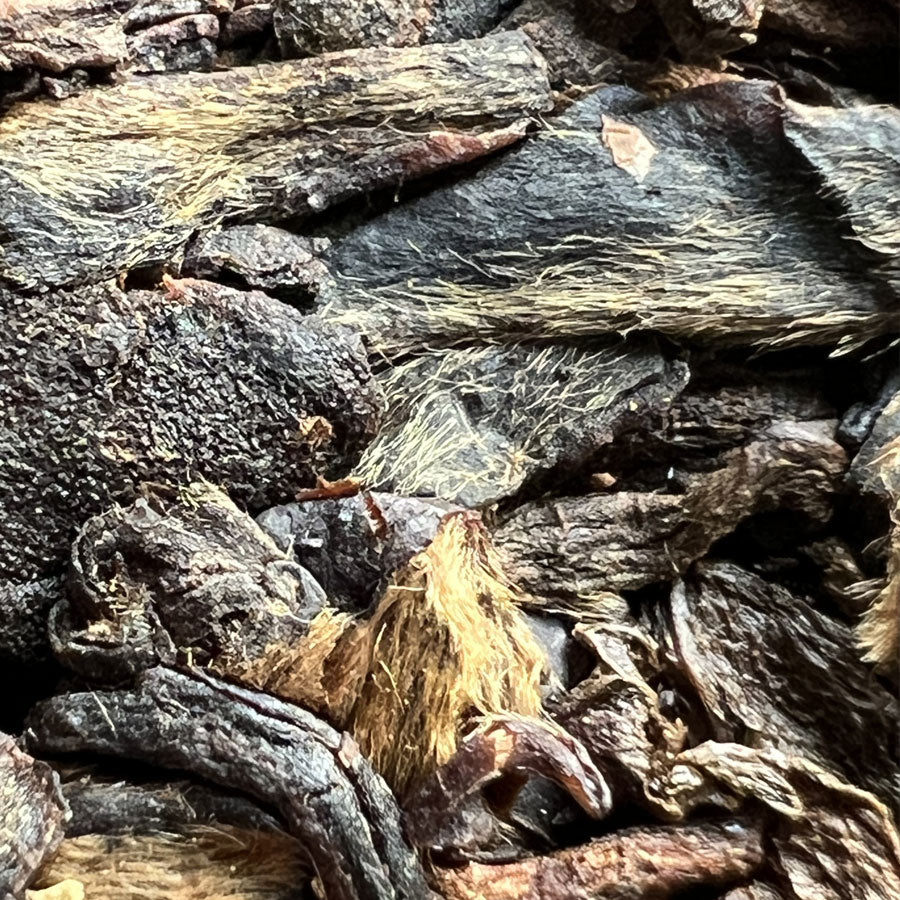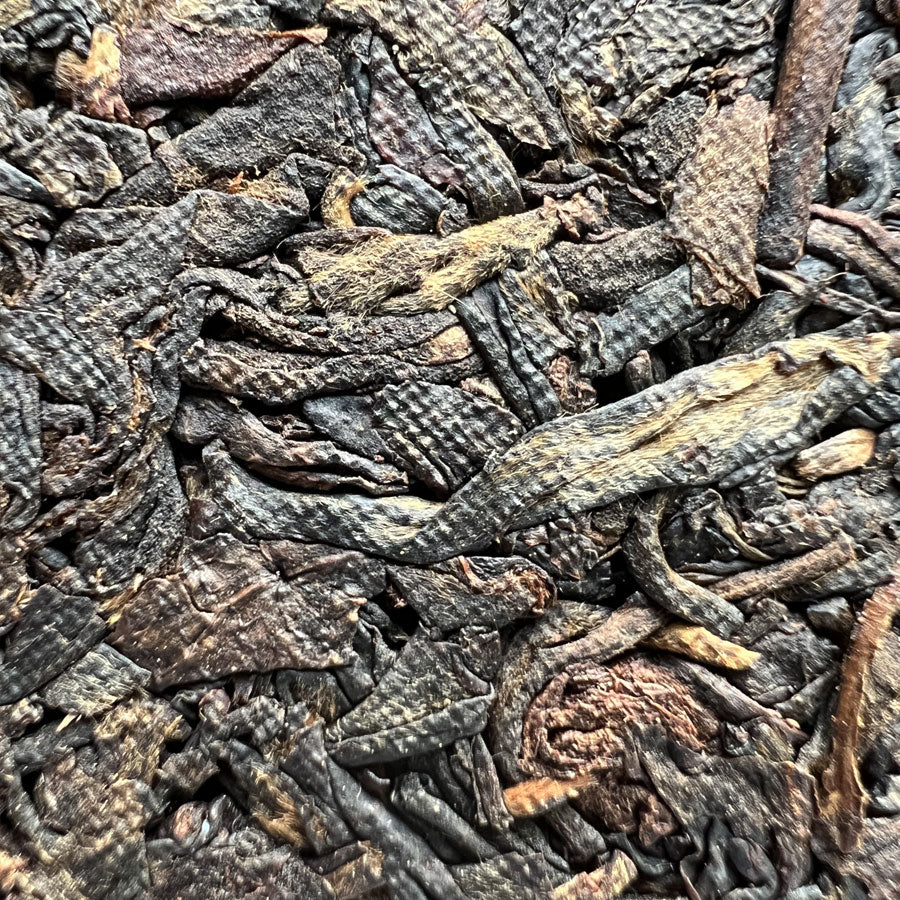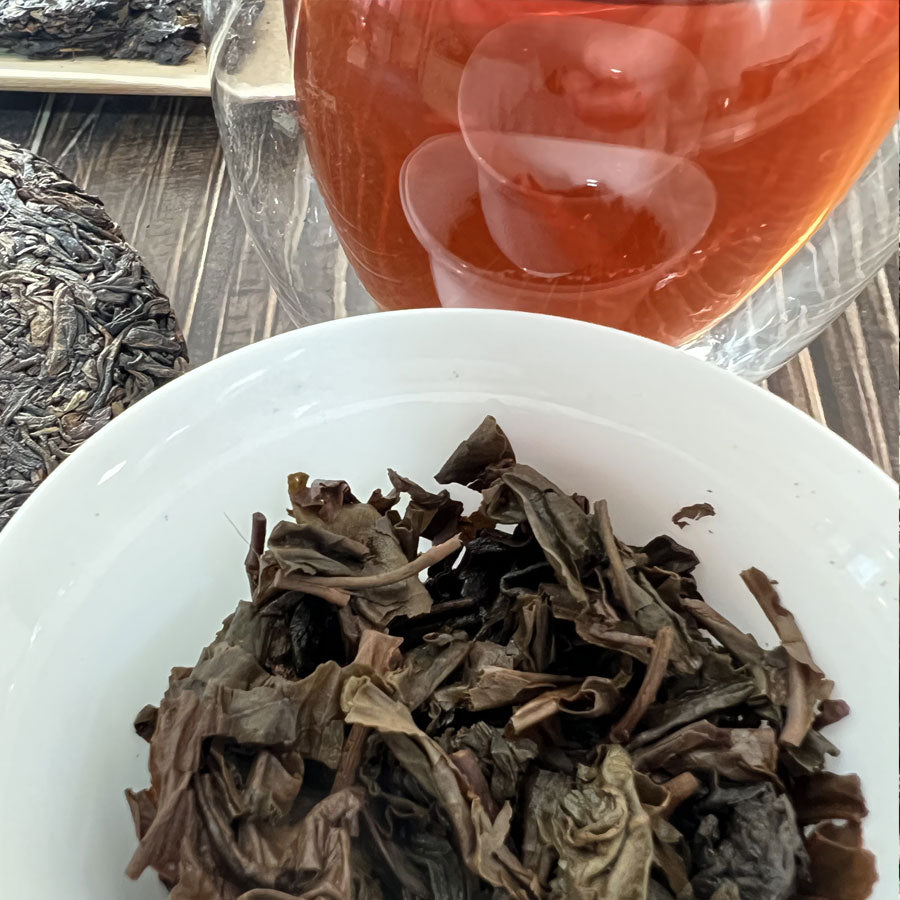Lemeilleurthedechine
CNNP Raw Pu-erh tea red stamp - 357g - 80's
CNNP Raw Pu-erh tea red stamp - 357g - 80's
Couldn't load pickup availability
Origin: Yunnan
Specificity: Loose raw tea from the 1980s, pressed into cakes in 2000. The compression is tight and the tea was aged in Kunming.
Packaging: 357 g pancake. This is a production of small farmers using generic packaging.
Properties: Excellent for health. It’s a totally unique cake, the cha qi is definitely there.
Dosage: 7 grams with which you can enjoy around fifteen infusions. Very aromatic taste. Vary according to your desires.
Number of infusions: Depending on the length and latency, you will be able to taste at least 15 to 20 consecutive infusions
Preparation: Preferably use mineral or filtered water, low in limescale. Bring the tea to 100°C and rinse it quickly twice. Then, infuse the tea at a temperature of 90 degrees Celsius for the first time, for 6 seconds. Taste then infuse again for 6 seconds if you like it. The next infusions will surely be longer because they are less astringent and last 9 seconds, then 12, 15… I advise you to pass the first infusion very quickly because its robustness will develop too much astringency on the first palates. You will then be able to enjoy this tea for many hours over ten palates where it will make you discover all its flexibility, its generous and persistent aromas.
Tones: Orange in color, soft and sweet on the palate, devoid of the very bitter character of the youngest. Taste pronounced of camphor. The taste is thick and spicy without bitterness.
Storage: Keep in its original packaging and do not lock the cake. Sheng Puer matures and loses its bitterness over the years. For excellent aging the cake must breathe. Avoid spaces that are too large and odors that are too strong (incense, cigars, etc.) No age limit. Puer teas are aging teas and see their aromas develop over the years. In China, this tea has matured on the plateaus of the Yunnan province and has already evolved considerably, after 10 years of aging.
